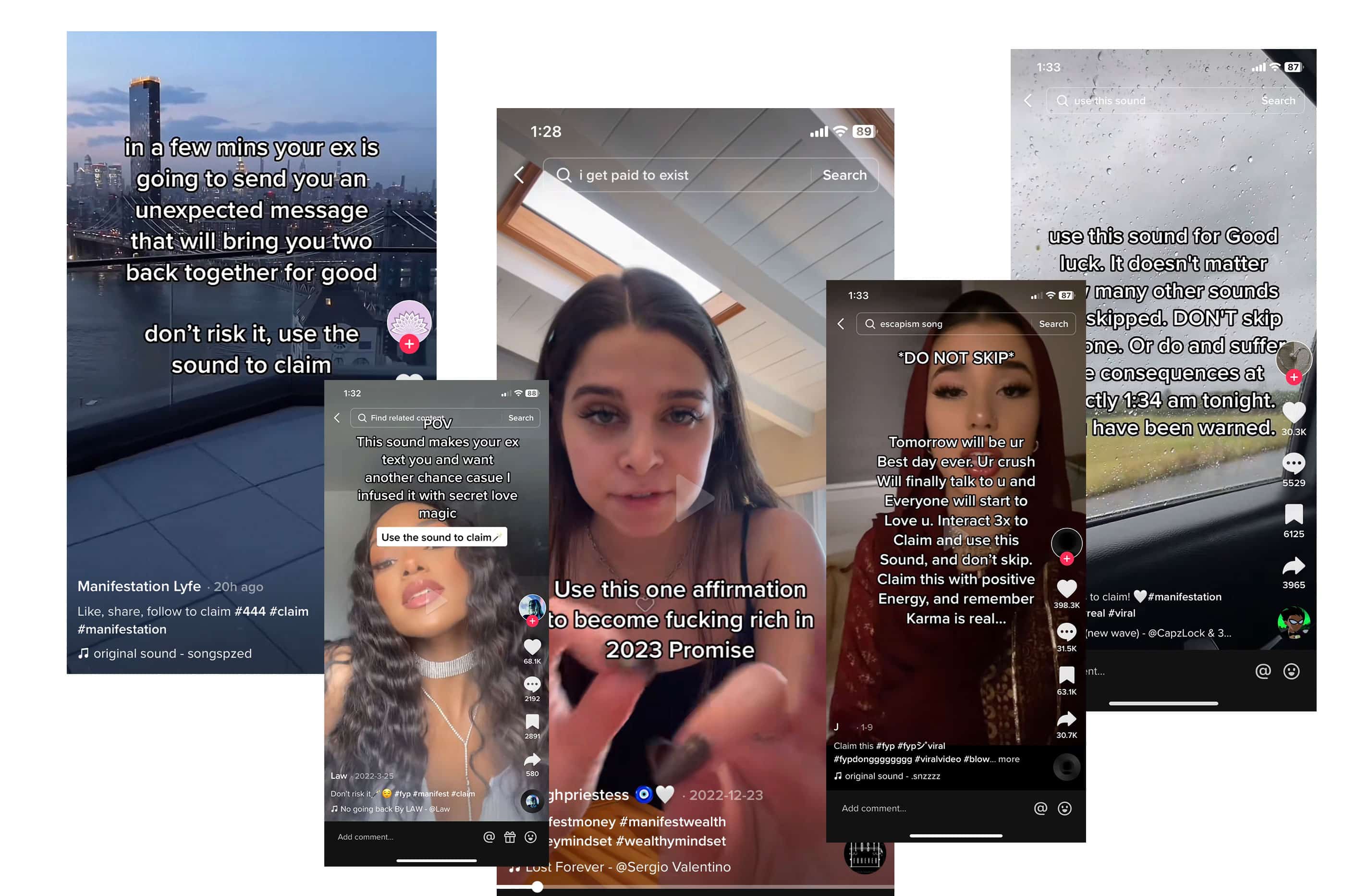
You may remember a time when the humble chain email filled your early 2000s Hotmail inbox. Your adolescence may have been punctuated by forwarded messages from a grandparent or school friend, usually with a subject heading penned in all caps, and a recipients list longer than you care to remember. Their defining purpose, replication: whether enticed by the possibility of good favour or fortune, or in fear of tempting fate should we not comply. Superstitious or not, you might have found yourself following absurd instructions to 'forward this email to 12 people' as prompted, 'just in case' whatever ridiculous threat or miracle it predicted might (against all odds) be true.
@.snzzzz Claim this #fyp #fypシ゚viral #fypdongggggggg #viralvideo #blowthisup #fypage #gethisviral #claim #karma ♬ original sound - J
While our inboxes don't seem to see chain letters in the form of emails too often these days, the format is far from obsolete. Now firmly in the era of social media, Gen Z seems to have picked up where we left off, our TikTok 'For You' pages of late becoming home to a spate of chain letter-type videos, predominantly from the spiritual side of the app. Content creators promising us good fortune, more money or simply a text from an ex, should you interact, repost, or comment 'I affirm' on their videos.
For a generation that has popularised the idea of manifestation, it's little wonder that these videos are magnets for TikTok virality. They're easy to make too: simply pop together a text post with instructions to like, comment, save or share, couple it with a vague threat of impending doom or claim to fortune, and soundtrack it one of the platform's trending audios – et voilà!
@user006382070008 4x + follow to claim 🍀 love you 🤍 #claim #trending #manifest #blowthisup #fyp #viral ♬ 我做了一个很长的梦(剪辑版) - 山崎泽野
Chain mail in one form or another isn't new. They've been around since well before the dawn of technology, some chronicling its history back more than a thousand years to early religious texts demanding replication, those compliant promised some form of eternal salvation. In some ways it feels like we've come strangely full circle with Gen Z's chain mail resurrection in the digital spirituality age. Only 'eternal salvation' has been replaced by 'a work promotion' or 'a text from someone you like'. Though the stakes may feel vastly incomparable, perhaps there is still a through-line here: that we have always suffered from the same afflictions that make us susceptible to chain letters; that at our core we are looking to console our anxiety, control our narratives, to confirm our biases.



